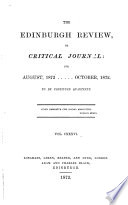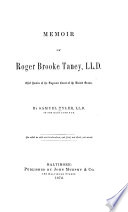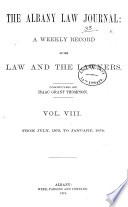 | 1872 - 610 pages
...the days of slavery, is still inclined to act on Chief Justice Taney's dictum in the Dred Scott case, that ' a negro has no rights which a ' white man is bound to respect.' But Mr. Somers found that, as a rule, public opinion has become quite reconciled to free negro labour,... | |
 | Vermont Historical Society - 1926 - 630 pages
...line to slavery. The wording of the opinion of the Chief Justice gave ground for the brutal doctrine that a negro "has no rights which a white man is bound to respect. " The result of the doctrine was, no negro slave, imported as such from Africa, and no descendant of... | |
 | 1863 - 638 pages
...nominally free as well as bond. It has been the voice of all parties, as well as Judge Taney, that " the negro has no rights which a white man is bound to respect." The nation has stood with its sword over these four millions, to support the despotism of the masters,... | |
 | 1887 - 984 pages
...phrase of the statement, and applying it in the present tense, accused the Chief-Justice with saying that " a negro has no rights which a white man is bound to respect." This was certainly a distortion of his exact words and meaning ; yet the exaggeration was more than... | |
 | Samuel Tyler - 1872 - 674 pages
...juries, by elaborate arguments, to bring the nefarious traffickers to punishment. The African slave22 trade had been made a crime by Act of Congress. But...torn from their African homes, and subjected to the sufferings and cruelties of a prison-ship, to be sold into perpetual slavery to a different people.... | |
 | Samuel Tyler - 1872 - 672 pages
...and from the first settlement of the country, the colonies, and afterwards the States, both of Xew England and of the South, had acted upon the principle...torn from their African homes, and subjected to the sufferings and cruelties of a prison-ship, to be sold into perpetual slavery to a different people.... | |
 | 1874 - 440 pages
...claimed in his defense, and the remark is often made, that he did not express it as his personal opinion that " a negro has no rights which a white man is bound to respect." And this claim is literally true ; he attributes this opinion to the people and age in which the constitution... | |
 | 1874 - 450 pages
...claimed in his defense, and the remark is often made, that he did not express it as his personal opinion that "a negro has no rights which a white man is bound to respect." And this claim is literally true ; he attributes this opinion to the people and age in which the constitution... | |
 | Albany Institute - 1876 - 330 pages
...claimed in his defence, and the remark is often made, that he did not express it as his personal opinion that " a negro has no rights which a white man is bound to respect." And this claim is literally true ; he attributes this opinion to the people and age in which the constitution... | |
 | Robert Ellis Thompson, William Wilberforce Newton, Otis H. Kendall - 1880 - 1000 pages
...has to be overcome by force or fraud, or both. In their hearts many of them agree with Judge Taney, that " a negro has no rights which a white man is bound to respect." Through the last two sessions of Congress they labored hard to strip him of the last vestige of national... | |
| |